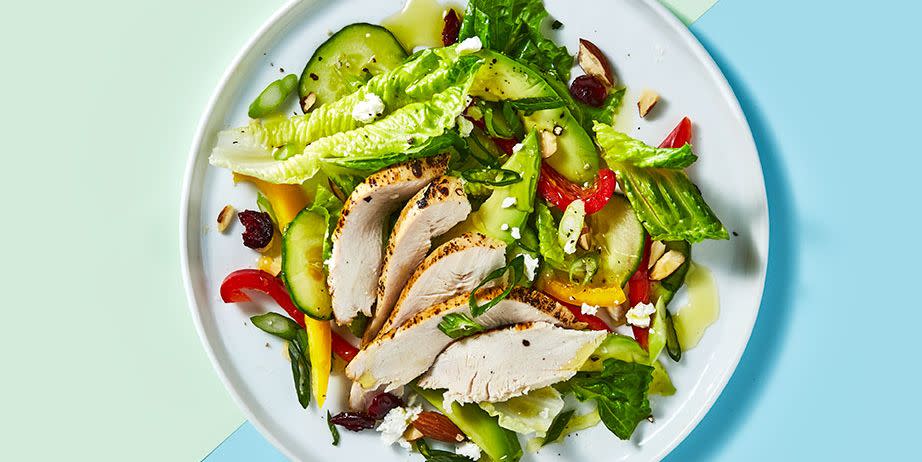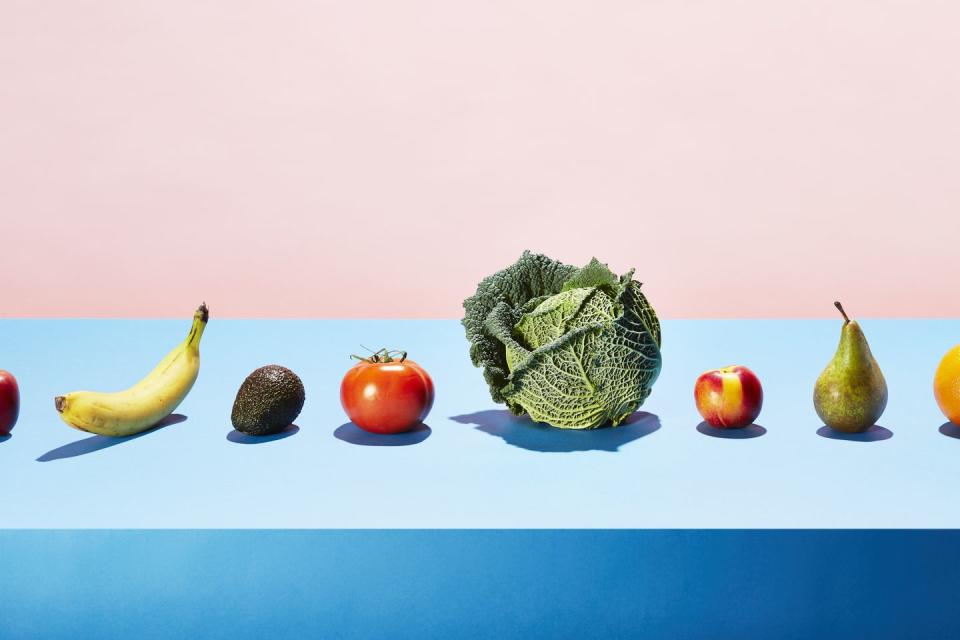What Nutrition Means to Us

As we learn more and more about the connection between dietary habits and overall health, many consumers are taking increased interest in their own personal health and nutrition decisions. Nutrition is an evolving field and new research is being published every day. Given the flood of nutrition misinformation that may be misleading and is not supported by science, it can be difficult to decipher between what is legitimate and what is not. Our mission at the Good Housekeeping Nutrition Lab is to provide consumers with evidence-based nutrition content and recommendations to help you make informed food choices and live your healthiest life. The lab has developed the Good Housekeeping Nutritionist Approved Emblem (GHNA) to help consumers lead healthier lives by empowering them to make informed food choices. Vetted by our Registered Dietitian, the emblem helps consumers instantly identify healthier options. These products:
Meet the GH Nutrition Lab’s established criteria for healthy eating
Contain real, whole foods as the leading ingredient
Use no misleading marketing language
We strive to be that clarifying voice for you in the supermarket, giving you confidence when grocery shopping for you and your family. That begins by helping everyone understand what great nutrition means to us, which include:
1. Eating plenty of fruits and vegetables

Individuals who eat more vegetables and fruits as part of an overall healthy diet are likely to have a reduced risk of certain chronic diseases. Produce provide nutrients vital for health and maintenance of your body. Instead of loading up on high-calorie items, incorporating more produce in your diet can help you fill up on nutrient-dense but low-calorie alternatives that provide countless health benefits. We advocate for a plant-based diet, which is packed with antioxidants, vitamins, minerals, and fiber.
2. Limiting excessive sources of sodium, added sugar, and saturated fat

GHNA utilizes evidence-based criteria to promote consuming more produce, whole grains, fat-free or low-fat dairy products, nuts, seeds, legumes, lean proteins, and heart-healthy oils while limiting added sugars, saturated fats, trans fats, and sodium. The goal is to help individuals make improved food choices that promote long and short-term health and help reduce the risk of chronic diseases. We're cutting through the supermarket clutter to show you what foods are made from real, simple ingredients that promote health. The ones that exploit certain health attributes through sexy marketing claims or use of trendy ingredients? Well, they simply don't qualify.
3. Prioritizing hydration

Did you know that over 60% of your body is made up of water? Every single cell, tissue, and organ in your body needs water to function properly. Drinking enough water each day is vital for regulating body temperature, preventing infection, delivering nutrients to your cells, and even optimizing your metabolic rate. Making sure that you stay well-hydrated throughout the day can also improve sleep quality, cognition, and even mood. Water is always preferred, and you'll want to steer clear of sugary beverages and juices that are loaded with excessive amounts of added sugar.
4. Eating mindfully and consciously indulging

Distracted eating and multitasking, like eating while watching TV, can prompt you to eat more. Slowing down, savoring your food, and eating mindfully can all help control your intake. You can practice mindfulness during any time of the day, but it is especially important when eating. This includes noticing the color, smell, flavor, and texture of the food you’re eating. And we're not about deprivation here at GH — we want you to have dessert, eat pizza, and bake brownies! But we want you to make these food choices consciously and from a place of empowerment — not because you've been mislead into believing something you're eating is good for you when its nutritional profile more closely resembles a candy bar. Consciously indulging means listening to your body and enjoying your favorite foods in moderation.
5. Building healthier lifestyle habits

We aren't into fad diets here at GH and certainly don't support any quick fixes. We believe in lasting change that is manageable, practical, and doable. We understand that there is not a one-size-fits-all approach to health. Everyone has their own unique health journey, and just because something works for a friend of yours doesn't necessarily mean it will work for you. Our nutrition education is designed to help you build healthier habits for the long-run and really transform these habits into a lasting lifestyle change. We support holistic wellness and feel that diet and exercise go hand-in-hand. Establishing healthier habits slowly and gradually can help you reap the benefits for a lifetime- in our eyes, it's never too late to start making healthy changes.
You Might Also Like

